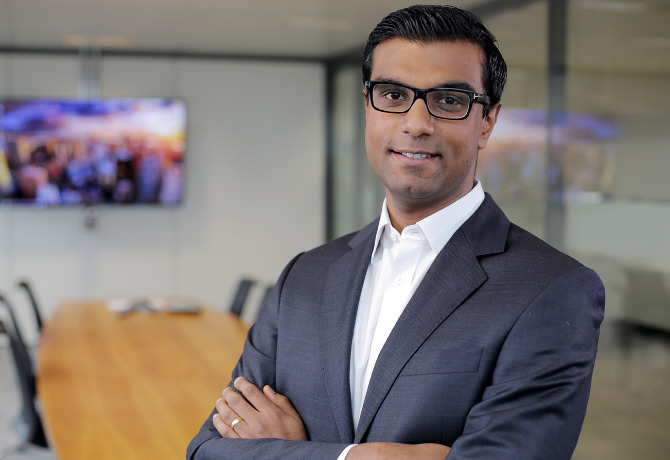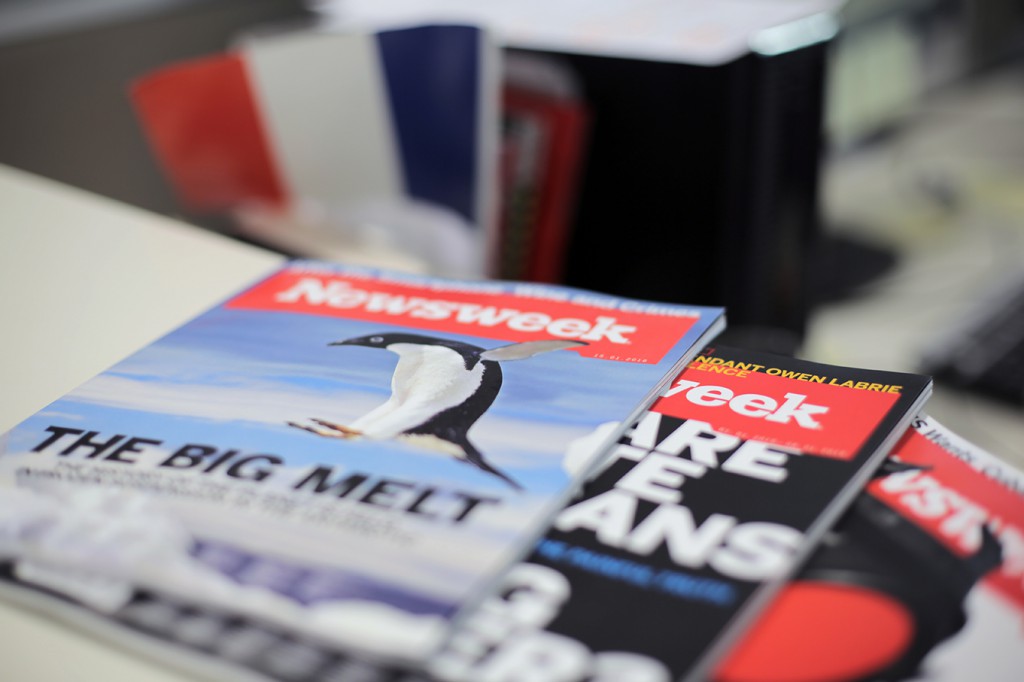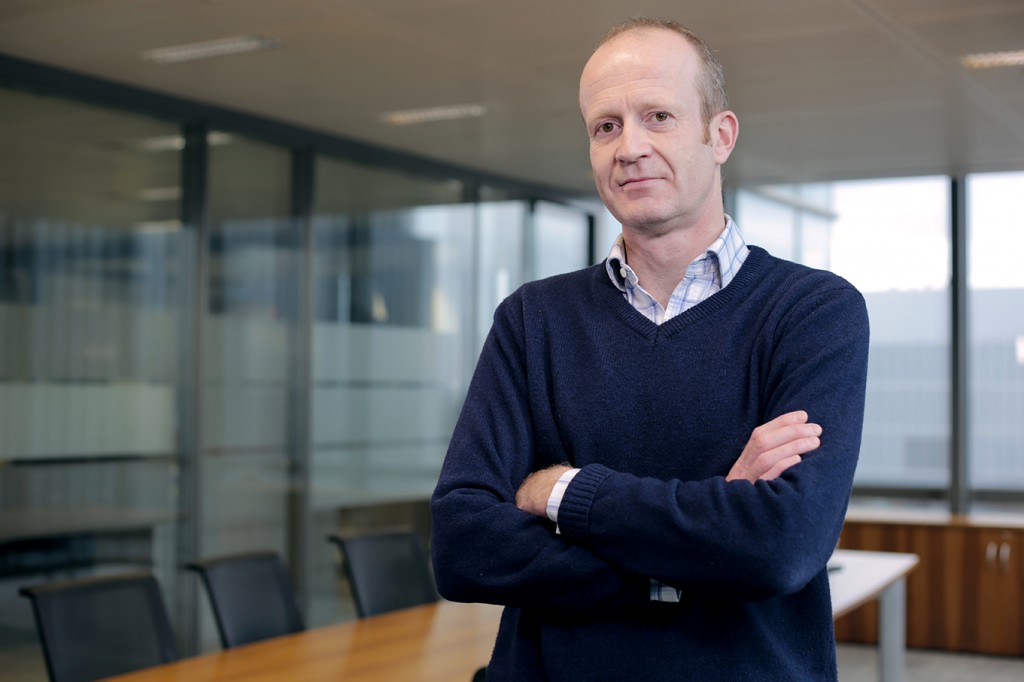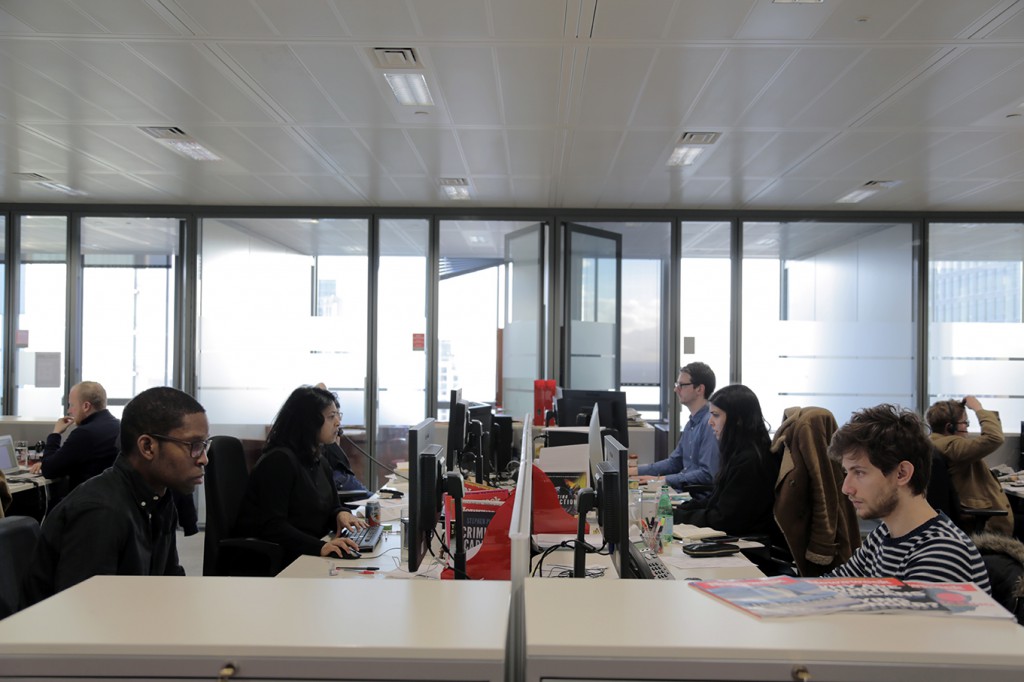IBT Media managing director for the UK and EMEA Dev Pragad (pictured, below) and vice president of sales EMEA Jeremy Makin talk to M&M Global about their plans to take the publisher to the next level.
Gazing at the view of London from the company’s high-rise offices at London’s Canary Wharf, and glancing at the editorial team of an 83-year-old weekly news magazine, it is easy to forget that IBT Media is a relative newcomer to the scene.
The firm was one of a clutch of revolutionary, digital-first publishers to emerge from New York in the mid-2000s, including Mashable, BuzzFeed, The Huffington Post and Business Insider. And if IBT Media’s rise to prominence was slower than some of those companies, this all changed with the headline-grabbing acquisition of Newsweek in 2013.
We spoke to IBT Media’s London leadership team about its aims for international expansion across EMEA, the new range of commercial solutions it will launch in 2016, and how it plans to combat the rise of ad blockers with a new approach to publisher-reader relations.
In the beginning
Dev Pragad, the managing director IBT Media for the UK and EMEA, was studying in the British capital when he met fellow London students Etienne Uzac and Johnathan Davis. As far back as 2004, says Pragad, the duo were bemoaning the lack of truly international media, not wedded to a New York or London-orientated view of the world.
“What if we were able to launch a publication that was international without being biased towards one particular source of gravity, like Wall Street or the City of London?” he says. “Our idea was to launch international editions, and to sell to local markets, and that is how it happened.”
While Pragad returned to his studies in mobile internet at London’s King’s College, Uzac and Davis relocated to New York, co-founded International Business Times and launched a digital news portal bearing the same name.
Focusing on niche financial news such as equities and forex trading, IBT soon gained a sizeable following, and it wasn’t long before the founders were tapping up London-based Pragad to expand the operation across the pond.
Pragad smiles, recalling his desire to escape an eight-year stretch in academia: “I knew this was going to be big. When I finished my thesis, I thought, ‘Life is getting a bit boring’. I wanted to do something exciting.”
When Pragad finally assumed control of IBT Media’s London operation in 2009, it was limited to a small team of four. However, by replicating the approach taken in the US, the publisher was able to quickly grow traffic – growing as much as 1500% within a 12 month period. As early adopters of programmatic technology, IBT Media’s revenues also grew, despite minimal staffing on the commercial side.
In 2013, the business came to prominence in the global media with its surprise acquisition of troubled weekly magazine Newsweek, returning the title to print and launching a Europe edition.
Despite the subsequent decision to bring the European version under the guidance of US editor-in-chief Jim Impoco, IBT Media this week announced that Newsweek is profitable in EMEA for the first time. And the addition of the magazine led to a reappraisal of the company’s global set-up, reveals Pragad.
“When we launched, our focus was just the UK. [However], after we acquired Newsweek, we had a broad strategy meeting and reviewed our international ambitions,” he says. “We want to launch more editions in EMEA, the US wants to expand into South America, and then there is Asia.
“We felt it is impossible for one office to run everything, so we needed to decentralise it and create four regional centres in New York, London, Bangalore and Sydney.”
Pragad is now making moves to transform IBT Media UK into a truly international hub, recruiting former Economist worldwide sales director Jeremy Makin as EMEA commercial director, and earlier this week announcing the appointment of Hearst Magazine’s Greg Witham as its first chief operating officer.
Commercial solutions
A key focus for IBT Media in 2016 is to expand its portfolio of commercial solutions, notably in the native and premium direct sales fields. The publisher was “very open” to programmatic technology from an early point, allowing it a head-start on rivals, but there are also improvements to be made in this area, says new commercial head Makin, especially with new digital and mobile versions of IBT and Newsweek set to go live soon.
“We have done well programmatically to date, but we feel we can do better to raise the yields, raise the fill rate, and to drive more revenue,” says Makin (pictured, below). “At the same time, we can build a premium direct sales revenue stream, which is something that IBT historically hasn’t had. We have a toolkit, and we want to fill that toolbox with premium products [our team] can sell.”
One part of that toolkit will be the introduction of a concerted native advertising play. Makin reveals the publisher is looking to recruit a head of creative content, which he argues will prove a “very important hire for the business”. They will be allowed to recruit editorial assistance – both internal and external – to create high-quality content for advertisers.
Makin also emphasises that his role is pan-EMEA, and he intends to seize the “massive opportunity” to grow traffic and revenues in locations such as Western Europe, the Middle East and sub-Saharan Africa.
While Newsweek will continue to target its traditional “fodder” of upmarket brands, from luxury watch makers to automotive manufacturers, he believes IBT ought to go after advertisers in the “business-tech sector”, arguing there are “very few outlets” offering these firms scale and the right audience.
Makin also believes synergies exist between the publisher’s two titles: “With Newsweek, we are talking about high-end business traveller decision-makers. I see IBT in particular as the go-to place for Millennials who do not fit with the FT or Mail. But it is a very good fit for us, because you can see how can IBT reader might migrate to Newsweek, and a Newsweek reader wanting a more immediate reaction to a story might go to IBT.”
Micro-payments
So far, so obvious, perhaps. It is no surprise that a publisher of IBT Media’s scale would want to implement a comprehensive suite of solutions for advertisers. What is more novel is Pragad and Makin’s plan to tackle the growing ad blocker epidemic and reform the relationship between content providers and consumers.
The figures remain sketchy, but it is now agreed that tens of millions of users globally have downloaded ad blocking software, depriving those publishers not lucky (or rich) enough to be whitelisted of vital revenues.
Some media owners, including Axel Springer and UK business newspaper City A.M., have taken to ‘blocking the blockers’ – in other words, preventing those using the software from accessing their content. Makin dismisses this approach as “slightly naïve”, and says publishers should instead focus their energies on finding ways to enhance user experience.
“If it’s done well, and it is relevant and an engaging experience for the reader, advertising isn’t necessarily a bad thing,” he says. “Data allows you to get much closer to the Holy Grail of right-time-right-place-right-person, so the advertising theoretically becomes not a chore but something that is complementary. From a design perspective, if you bear that in mind, you should be able to seamlessly embed the advertising into the editorial experience.”
“The people ad blocking tend to be on the younger side. They’ve grown up getting stuff for free”
This “sympathetic environment” strategy is one option being looked at by IBT Media. The other, Makin says, is allowing users to make micro-payments for individual articles – a tactic it is likely to be trialled on its sites particularly affected by ad blocking, such as its technology vertical section.
Digital, social and now mobile channels have eroded the relationship between publisher brands and readers, with brands arguably mattering less than the pieces of content themselves (“people need to know your brand; they need to value your article”). What is required, claims IBT Media, is a way for reader engage commercially with a piece of content without the need for a full subscription.
“If you can facilitate the experience that the user wants, allow them to pay even as little as $0.25 for that story, then we are getting something back from it and the reader is getting the experience they want as well,” says Makin.
Pragad agrees, using the analogy of the music industry’s journey from CDs to digital downloads and streaming, overcoming the challenge of piracy along the way.
“The people ad blocking tend to be on the younger side. They’ve grown up getting stuff for free. Deep inside they know they should be paying for [content]. By creating a deeper engagement with them, and offering multiple solutions, you can slow down the rate at which ad blockers are being downloaded and foster a culture in which content is paid for,” he says.
2016 plans
The key transformation for IBT Media for the UK and EMEA over the coming 12 months will be its shift from national media company to international hub.
Having previously worked in emerging markets for Vodafone and Alcatel-Lucent, Makin is particularly enthused by the “enormous potential” to grow the business in the Middle East and sub-Saharan Africa, pointing out the arrival of major agency groups in the region.
The investment tap remains firmly on, says Pragad: “Definitely expect new editions to be launched. We believe in investing in our core product and editorial. We have lots of catching up to across our verticals and categories. They key is that we are very nimble.”
If brands and agencies were in any doubt over the proposition offered by IBT Media, then that is becoming clearer. What now remains to be seen is the extent to which the publisher can muscle in and disrupt long-standing relationships – and transform that evident ambition into very real ad revenue.











